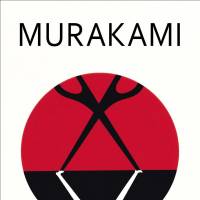Haruki Murakami can be difficult to pigeonhole at the best of times but nothing can quite prepare the uninitiated for the ethereal themes that bubble beneath the surface of "Hard-Boiled Wonderland and the End of the World."
Murakami's fourth novel, published in 1985, alternates between parallel universes. Occupying the odd-numbered chapters of the book, "Hard-Boiled Wonderland" is a science fiction tale in which the narrator is essentially a human data processor. He eventually learns he only has 1½ days to exist before he leaves the world he knows for a place he's invented in his subconscious mind. Still with me? Unfortunately, the insanity doesn't stop there. "The End of the World," meanwhile, tells the story of a newcomer who is seeking acceptance in an isolated town that is surrounded by a fortified wall. The newcomer's shadow has been cut off and he devises a plan to rescue the banished silhouette and escape. Those unfamiliar with Murakami's more surreal works may find the fantasy elements here a little hard to digest, but the dreamlike narrative is enough to keep most readers interested.
Murakami's love of linguistic trickery, too, makes frequent appearances. "Two people can sleep in the same bed and still be alone when they close their eyes," the narrator tells a librarian as he counts down to his imminent death.
All in all, it's a foreboding Murakami novel that makes you think as much as it makes you squirm.
Each week "Essentials" introduces a work of fiction that should be on the bookshelf of any Japanophile.


















With your current subscription plan you can comment on stories. However, before writing your first comment, please create a display name in the Profile section of your subscriber account page.